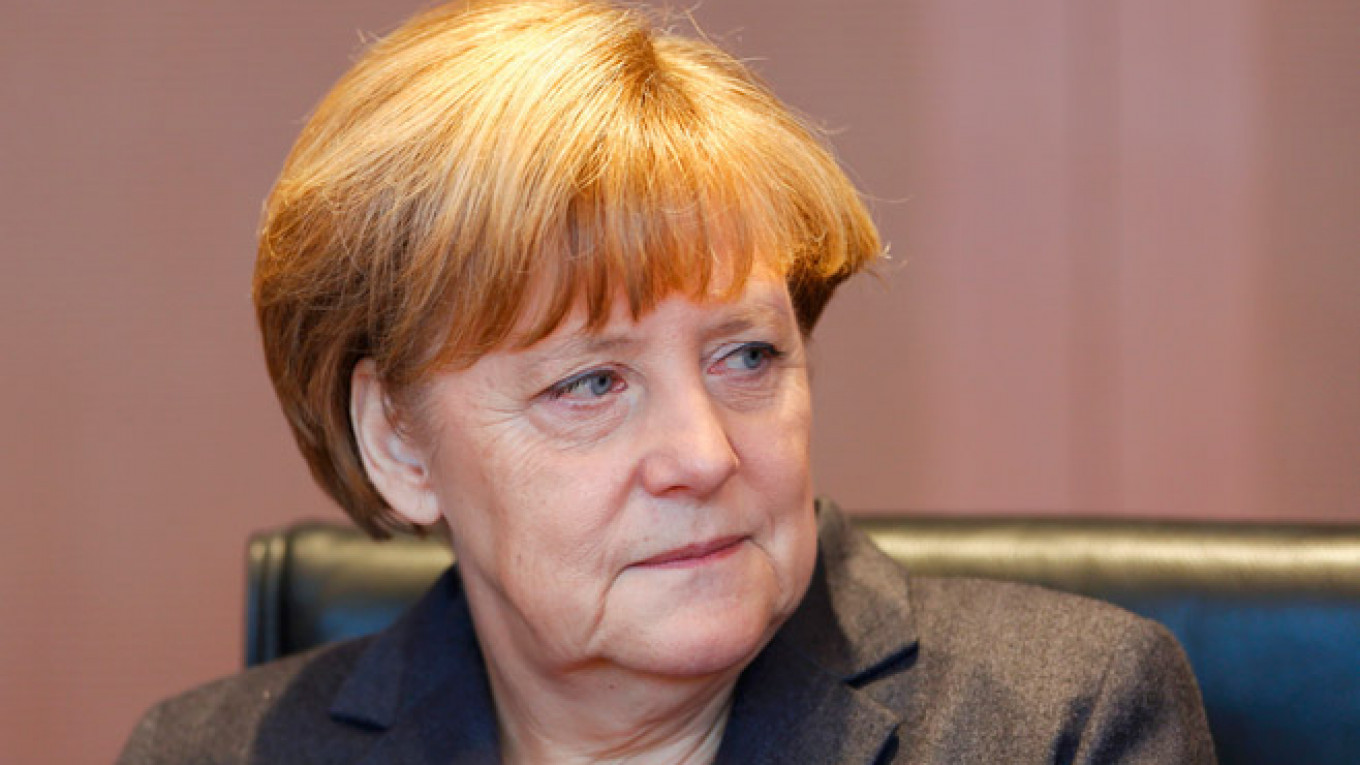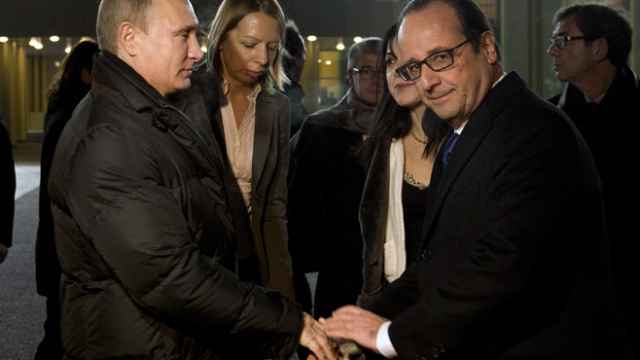German Chancellor Angela Merkel accused Russia on Sunday of interfering in the domestic affairs of numerous countries that are seeking closer ties to the European Union.
"Moldova, Georgia and Ukraine are three countries in our eastern neighborhood that have taken sovereign decisions to sign an association agreement with the EU," Merkel told German daily Die Welt in an interview.
"Russia is creating problems for all three of these countries," she said, pointing to "frozen conflicts" in breakaway regions like Transdnestr, Abkhazia and South Ossetia, as well as Russian interference in eastern Ukraine.
Moscow has shown its displeasure with Moldova's pro-European course, confirmed in an election last week in which a pro-Russian candidate was prevented from participating, by banning imports of Moldovan wines, vegetables and meat.
Last month Russian President Vladimir Putin signed a "strategic partnership" agreement with Georgia's breakaway region of Abkhazia, drawing strong criticism from NATO and the EU.
Beyond these moves, Merkel accused Moscow of trying to make countries in the Western Balkans economically and politically dependent on Russia in order to gain influence there.
She defended her decision at a NATO summit in 2008 not to put Ukraine and Georgia on track for membership of the military alliance, but reaffirmed NATO's commitment to defend countries in Eastern Europe, like Poland and the Baltic states, that are members.
"There is no reason to talk about a war in the Baltics. But regardless, Article 5 of the NATO treaty, which sees an attack on one member as an attack on the alliance as a whole, stands," Merkel said.
A Message from The Moscow Times:
Dear readers,
We are facing unprecedented challenges. Russia's Prosecutor General's Office has designated The Moscow Times as an "undesirable" organization, criminalizing our work and putting our staff at risk of prosecution. This follows our earlier unjust labeling as a "foreign agent."
These actions are direct attempts to silence independent journalism in Russia. The authorities claim our work "discredits the decisions of the Russian leadership." We see things differently: we strive to provide accurate, unbiased reporting on Russia.
We, the journalists of The Moscow Times, refuse to be silenced. But to continue our work, we need your help.
Your support, no matter how small, makes a world of difference. If you can, please support us monthly starting from just $2. It's quick to set up, and every contribution makes a significant impact.
By supporting The Moscow Times, you're defending open, independent journalism in the face of repression. Thank you for standing with us.
Remind me later.






